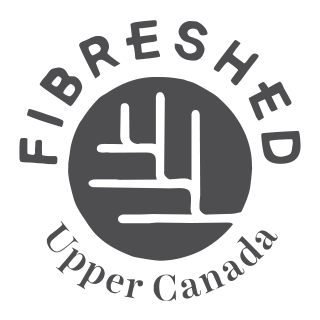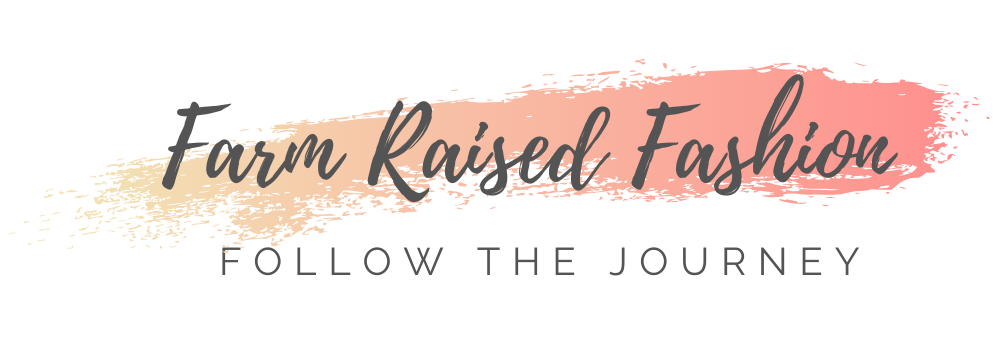Photographed by Emily Neill; Written and Researched by Becky Porlier
Wave Weir is a fashion designer, entrepreneur and big picture thinker with the skills and ambition to make big changes. She is the daughter of artists who learned to make and create what she needed from a very young age. Over the years she has developed her own clothing company, run a pioneer skills school, farmed cows, made cheese and is now in the process of reigniting her clothing company Wave Handmade, within the Upper Canada Fibreshed.

Emily and I visited Wave at her home and studio in McKellar Ontario, about 30 min’s outside of Parry Sound. Wave lives in a cathedral like straw bale house with plaster walls, wood heating, the most functional (and beautiful) kitchen you’ve ever seen. She designed and built her house after moving back to Ontario from Nova Scotia. The home has also served as a meeting place, art gallery, dance studio and concert hall. She has a grumpy old dog, beautiful art from her father and so many houseplants (clearly a kindred spirit.) For once, I arrived before Emily and Wave and I were already discussing the mill she’s initiating in the township of McKellar.

Wave has been reworking some old favorites from Wave Handmade. The Wonder Coat is made with 100% Norbouillet Wool from Allison Brown and handwoven by Deborah Livingston-Lowe of Upper Canada Weaving. Deborah and Allison also collaborated on the Norwood Shawl Kit.
“The Wonder Coat came to be from a book. It started as a Celtic blanket and it was so romantic, I wanted a blanket to wear, but the reality of our world, with seatbelts and purses, it didn’t make sense to have a blanket, but it started with that concept. Then you start to play with it. And you can wear it many different ways…. Wrap, double back, over, basically you’ve got a plain coat. It doesn’t matter how you wear it, you can hood it, wrap it around, pin it. And it changes. I’ve tried to rename it, but the name just stuck.”

The fabric is a twill. In order to keep the weaving as simple as possible, there is a light colour way and a dark colour way with the same warp. The original design was woven in Pennsylvania, years back, but when Wave decided to remake the coat with fibreshed principals, she thought it would be much easier to find a mill locally to make the fabric. She quickly found that it was actually much more difficult to have fabric made in Ontario – in fact impossible at the scale she needs – and so embarked on the journey of creating her own mill.

“Because I was developing my designs and because of the bottle neck in getting fabric and felt — I need volume – I thought, well let’s just put in a mill. I’ve been doing business plans for a mill and loom in Mckellar as a foundation business to create a community hub. So that grows Wave Handmade, and that grows the cottage industries around here.”
The mill as a foundation for her business, as an increase in service to Ontario farmers and as a resource for other entrepreneurs, is also key to the idea of sustainable development in McKellar and would be a model for other rural communities that are facing job losses and outmigration to larger city centers. The ecological principles are at the core of this business.
Phase 1 of the development is setting up the fibre mill with a loom. Space for incubating other businesses, hosting workshops and training others will be available; as this was a key finding of the Round Table Conference 2019 (Wave was the initiator and key organizer of the Round Table.) There is the potential for an artist in residence, retail space for products from the mill and for Wave Handmade. All products sold should be from the fibreshed – baskets, leather works and other ecologically regenerative, local artisan businesses.
McKellar is a lovely day trip from Noth Bay and Muskoka (cottage country). As Wave says, “It’s a clean industry that would put Mckellar on the map.
The challenge now is raising enough money to support the capital investments needed to bring this bioregional hub to life. Wave has some lenders and community supporters (she is looking for more). As well, she is working with Deborah (Upper Canada Weaving) to create McKellar ‘150’ Tartans in support of the mill and to celebrate the town’s 150th birthday and the historic mill that was in the village. We’ll keep you posted on where to find these.
After discussing the mill, Wave, Emily, Michelle and I climb the ladder to the workshop in the attic. It’s hidden away above the second floor, with a large window looking over the property and rolling hills of the country side. She has her sewing machine, work table and tools, plus fibreshed fabric and other raw material. Her prototypes and previous collection are on display. I would love to wear every last piece of the collection. Emily too. We spend a lot of time going over the other pieces, their material, construction, practicality and comfort. Wave thinks everything through. Plus, the longevity of her pieces are incredible. Wave is wearing a wool shirt she made 35 years ago.

Everything Wave does is well thought-out, made from natural materials and made by hand. But having a sustainable approach was not something she learned, it was, and is, just apart of who she is. “I didn’t become that, it’s just what makes sense. You cannot want to destroy where you live. And I grew up with parents who camped. We lived in a log cabin on an island in the bush until I was school aged. My mother was a spiritualist, and I remember sitting in a tree at the aged of 7 and realizing “ this tree has a spirit… just coming to those things. I think the tree told me.”
Now for some excerpts from our chat, in Wave’s on words.
On Wave Handmade
When I was a little kid, Mom sat us down with sewing needles. If you wanted something you made it. I created my whole wardrobe for high school, and years later, you sew things for your family. Life takes you in funny turns, I was starting out again on my own and someone commented on the things I made and they said “you should do something with this”. And so I started Wave Handmade. I was moving to NS and I started the business there. I was in Annapolis Royal and had a little 12 ft shop, then a downtown Halifax store front. All natural fibre, I imported hemp, silk cotton, organic cotton… I worked with the cottage industry, I did the design and prototype and then hired someone to do the production.
On Advice to Others:
[People often say]” if only I had training, money etc….then I would do what you are doing….” Well I’ve never had any of those things and yet I do it. You need your basics, sewing, hands on, but that’s about it. There has to be some sort of a drive. It doesn’t take money, I just started and went to a craft fair and sold it all, then got more fabric. You just do it. I think things out forever, but when I finally stop thinking about it, I think” do it or get over it and think about something else”. It comes down to action… ok and, what’s the action.”
On the Upper Canada Fibreshed, and Fibershed Movement:
The term is new, but the concept makes a lot of sense. Whenever I work on something, I try to keep it as close to home as possible. My economic development activity is about working from the ground up. ’Let’s keep it here. It’s what’s in your community. Let me see what I can do. How far did this have to come? How far did this thing come so that I can use it and throw it out in seconds?’ These are things that do not make sense, socially, environmentally, economically, [for] any kind of sustainability, to have people and communities thrive. Hearing the term fibreshed, it clicked. These are things I do anyway, and now it has a word.
The impact of the fibreshed is how I choose to live my life. For me it defines what I do. Questions I ask of myself; Is this something from down the road? Am I putting my money where my mouth is? Do you actually live it? I’m attempting to live the best I can. Are you at this moment? Are you living the way you want everyone else to live? Am I?
Without the fibreshed, reinventing my business would have been a lot more difficult. It has made more things accessible.
SHOP THE COLLECTION


